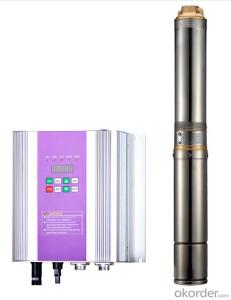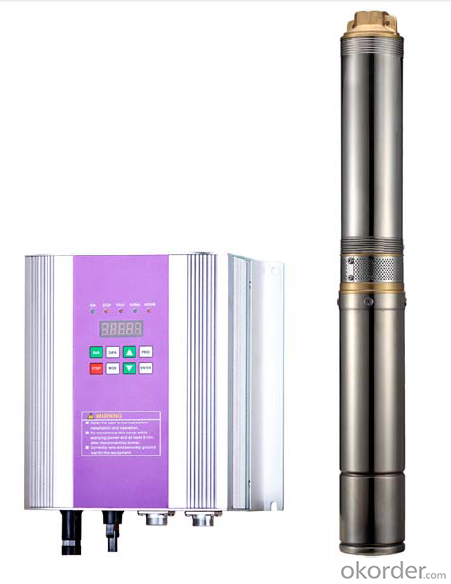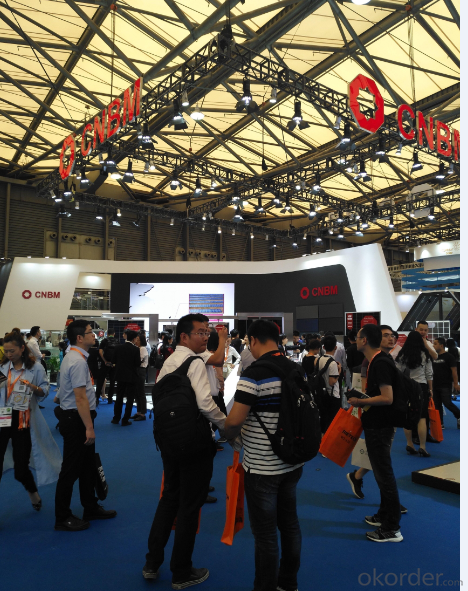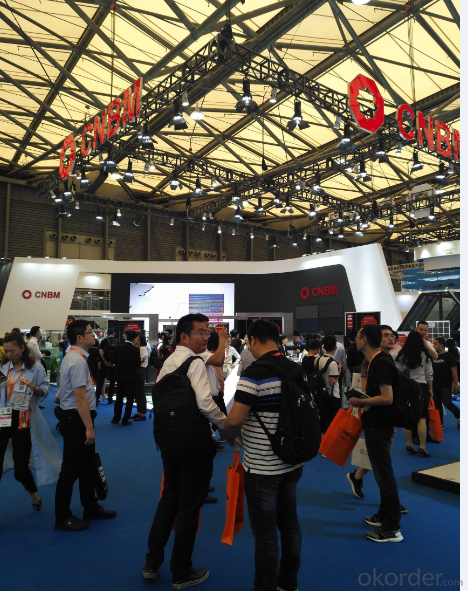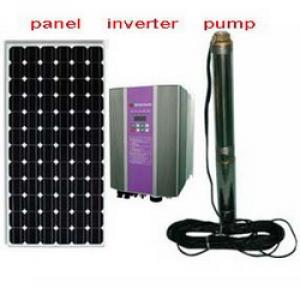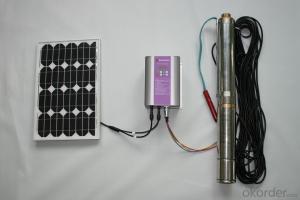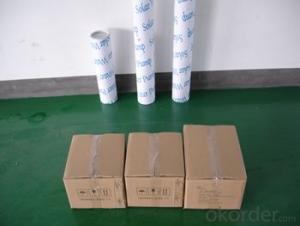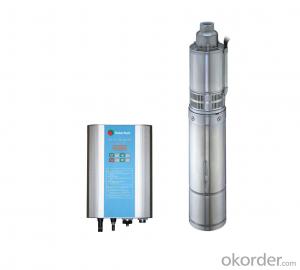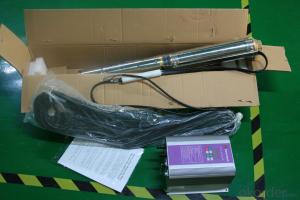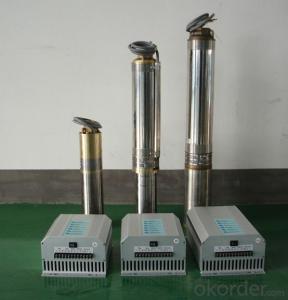Solar Pump DC & AC Water Pump System
- Loading Port:
- China main port
- Payment Terms:
- TT or LC
- Min Order Qty:
- 3 set
- Supply Capability:
- 10000000 set/month
OKorder Service Pledge
OKorder Financial Service
You Might Also Like
CNBM Group is short for China National Building Materials Group Corporation, which is established in 1984 with approval from the State Council
CNBM Group is the largest comprehensive building materials industry group in China
The Group has a total asset of over RMB 360 billion, more than 180,000 employees and 17 subsidiaries, and Solar is part of our business .
Solar water pump contains solar panels +inverter +pump . We have both DC and AC water pump system ,below is part of our products .
For other water head or daily flow ,we can discuss case by case .
Type one:SPA4370010
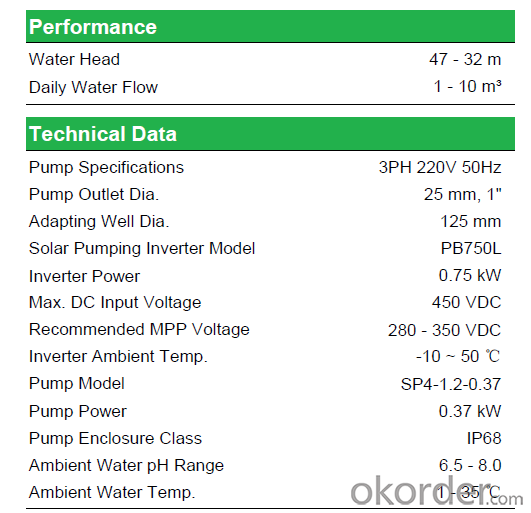
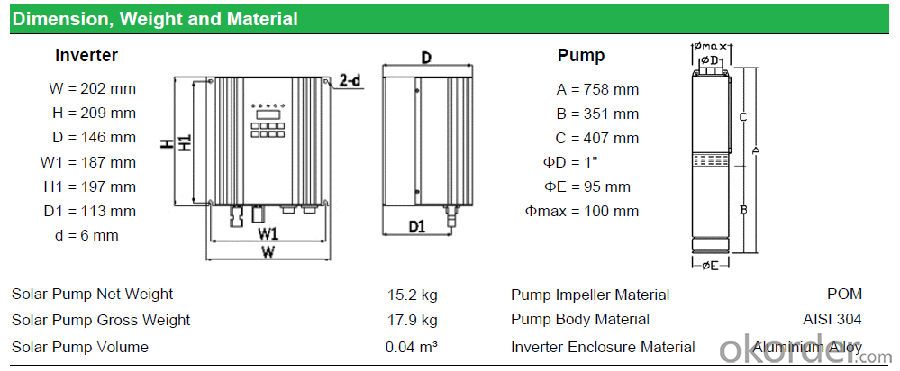
Type two:SPB626K180
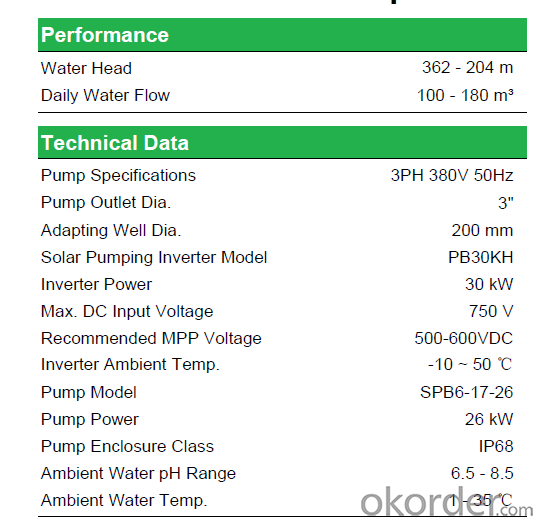
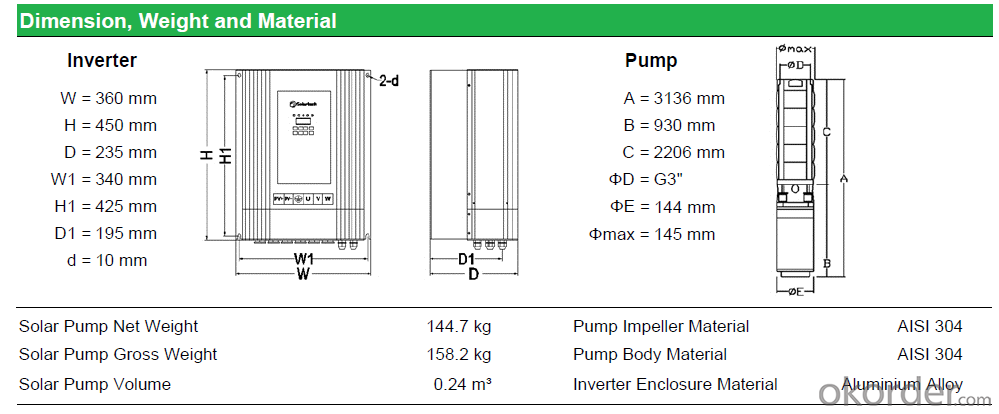
- Q: Can a solar pump be used in industrial cooling systems?
- Yes, a solar pump can be used in industrial cooling systems. Solar pumps are capable of providing the necessary water circulation and pressure required for cooling processes in industrial applications. Additionally, their utilization can help reduce energy consumption and dependency on traditional power sources, making them an environmentally friendly and cost-effective choice for industrial cooling systems.
- Q: How does the size of a solar panel affect the performance of a solar pump?
- The size of a solar panel directly affects the performance of a solar pump. A larger solar panel can generate more electricity, which in turn provides more power to the pump. This leads to increased water flow and higher efficiency, allowing the pump to operate more effectively, especially in low-light conditions. Additionally, a larger panel can also store excess energy in batteries, ensuring continuous operation even during cloudy periods or at night.
- Q: What is the typical power consumption of a solar pump?
- The power consumption of a solar pump can differ based on different elements, such as the pump's size and capacity, the available sunlight, and its specific application. On average, solar pumps generally consume between 100 watts and 1500 watts. It is noteworthy that solar pumps are designed to be energy-efficient and utilize renewable solar energy, resulting in significantly lower power consumption compared to conventional electric pumps. Furthermore, advancements in solar technology have led to the creation of more efficient and low-power consumption solar pumps, further diminishing their overall energy needs.
- Q: Can a solar pump be used in areas with high dust or sand content?
- Yes, solar pumps can be used in areas with high dust or sand content. However, it is important to regularly clean and maintain the solar panels to ensure optimal efficiency. Additionally, using a pre-filter or sand separator can help prevent clogging of the pump due to sand or dust particles.
- Q: Can a solar pump be used for water supply in off-grid eco-resorts?
- Yes, a solar pump can be used for water supply in off-grid eco-resorts. Solar pumps are a reliable and sustainable option for water supply in remote locations where grid electricity is not available. They harness solar energy to power the pump, making them environmentally friendly and cost-effective in the long run. Additionally, solar pumps can be easily installed and maintained, making them a suitable choice for off-grid eco-resorts aiming to minimize their carbon footprint and operate sustainably.
- Q: What is the role of batteries in a solar pump system?
- The role of batteries in a solar pump system is to store excess energy generated by the solar panels during the day. These batteries then supply power to the pump during cloudy or nighttime conditions when there is limited or no sunlight available.
- Q: Are there any disadvantages to using a solar pump?
- Yes, there are a few disadvantages to using a solar pump. Firstly, solar pumps are dependent on sunlight, so they may not work efficiently during cloudy or rainy days, resulting in reduced water output. Additionally, solar pumps require a significant upfront investment for the purchase and installation of solar panels, which can be expensive. They also require regular maintenance and cleaning to ensure optimal performance. Finally, solar pumps may not be suitable for areas with limited sunlight or those that experience extreme weather conditions.
- Q: How does a solar pump help in reducing water contamination?
- A solar pump helps in reducing water contamination by providing a reliable and clean source of power to pump and distribute water. Unlike traditional pumps that may run on fossil fuels or electricity from the grid, solar pumps use renewable energy from the sun. This eliminates the need for potentially polluting energy sources and reduces the risk of water contamination from fuel leaks or emissions. Additionally, solar pumps are often used in remote or rural areas where access to clean water is limited. By improving access to safe water, solar pumps can help prevent waterborne diseases and reduce the reliance on contaminated water sources, further contributing to the reduction of water contamination.
- Q: Are there any maintenance requirements for the solar panels used in a solar pump system?
- Yes, solar panels used in a solar pump system do have maintenance requirements. These include regular cleaning of the panels to remove dirt and debris, ensuring that the panels are free from shading by trimming nearby trees or plants if necessary, and inspecting for any damage or wear that may require repairs or replacement. Additionally, monitoring the performance of the panels and the overall system is important to ensure optimal efficiency and address any issues promptly.
- Q: What is the payback period for investing in a solar pump?
- The payback period for investing in a solar pump can vary depending on several factors such as the initial investment cost, the amount of energy savings achieved, and any applicable government incentives or subsidies. On average, the payback period for a solar pump investment can range from 2 to 7 years.
Send your message to us
Solar Pump DC & AC Water Pump System
- Loading Port:
- China main port
- Payment Terms:
- TT or LC
- Min Order Qty:
- 3 set
- Supply Capability:
- 10000000 set/month
OKorder Service Pledge
OKorder Financial Service
Similar products
Hot products
Hot Searches
Related keywords
